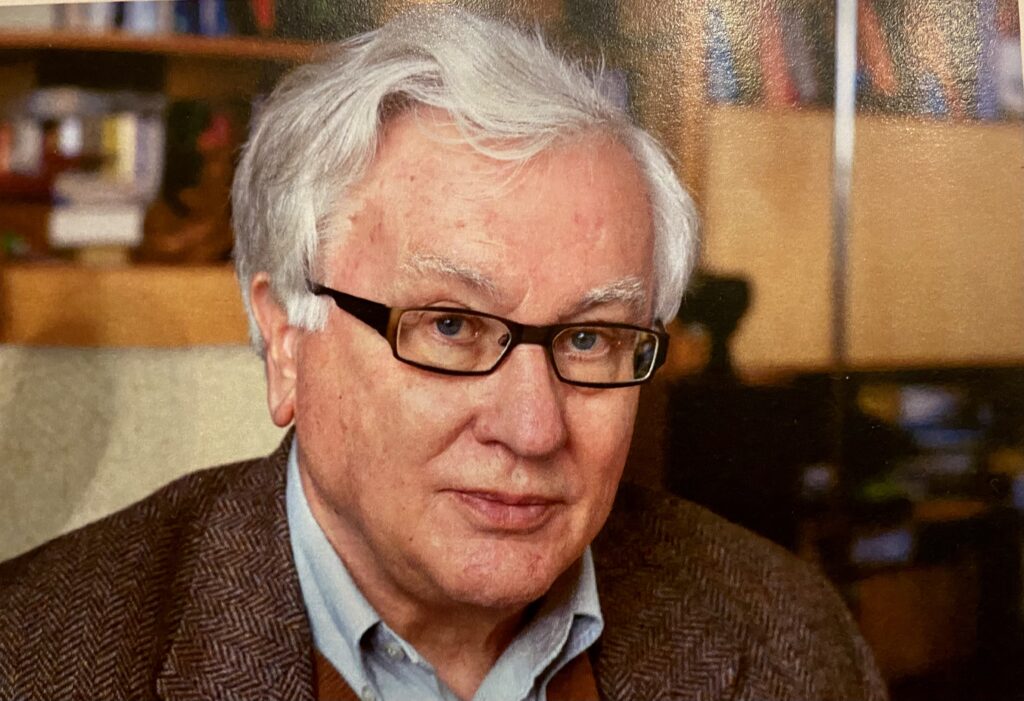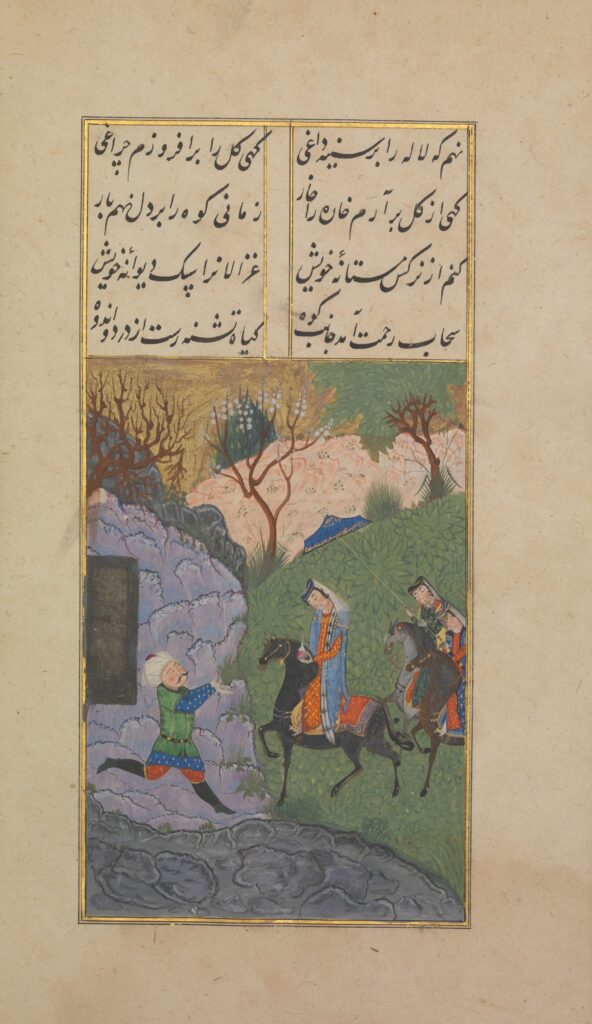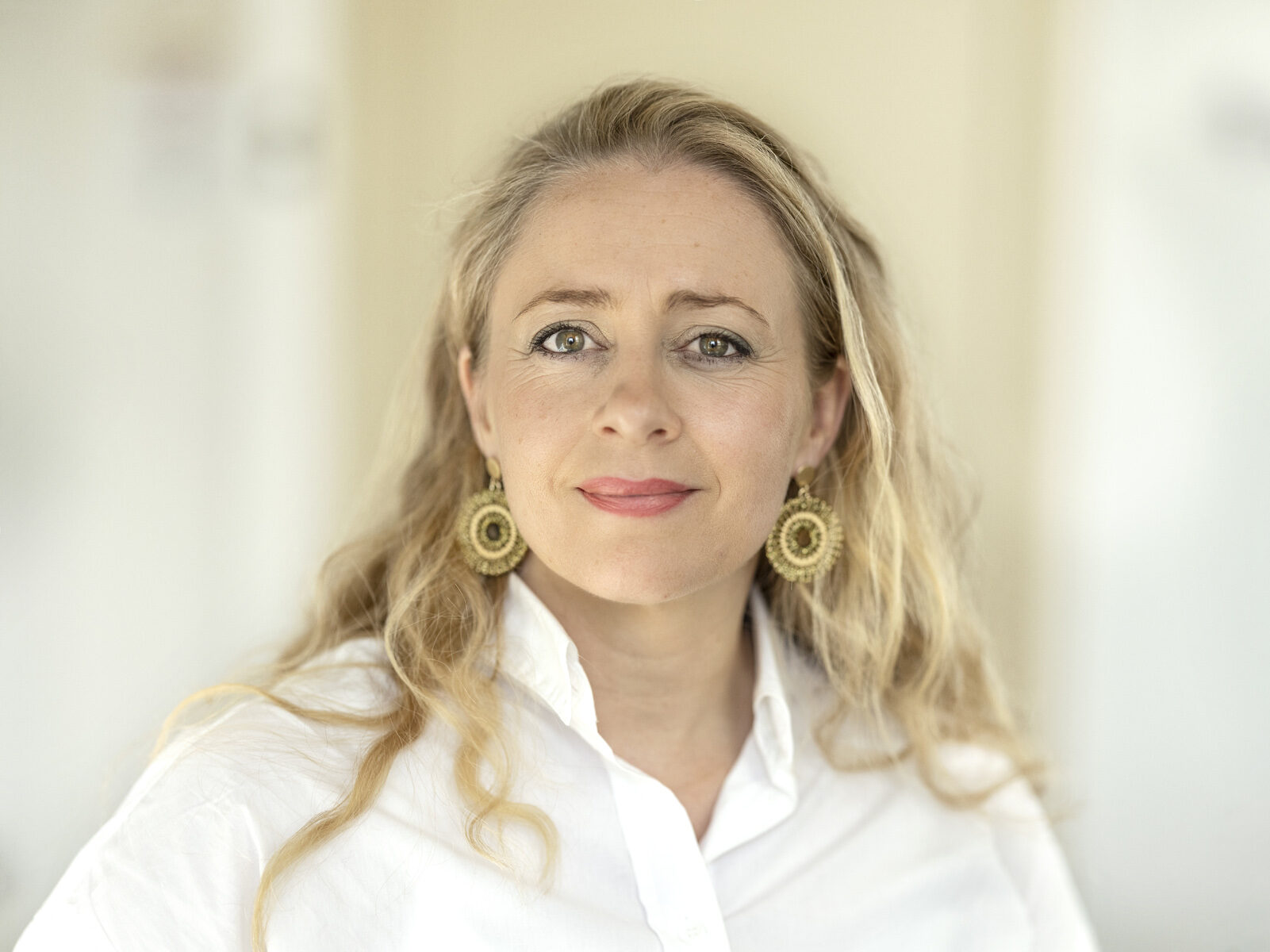An interview by Hannah Witteveen (Subject Specialist for the Departments of History and Religious studies)
From Sanāʾi to Rumi and beyond: introducing the new collection Iranian Languages and Literature at Utrecht University Library
In 2022 the University Library accepted a very special donation: the personal collection of emeritus Prof. dr. Hans de Bruijn, containing highlights of classical Persian poetry. After having been catalogued and assigned call numbers, a substantial number of these books have now been moved to the open stacks next to the collection of Islamic and Arabic studies at the University Library City Centre (UBB). They are the foundation of a new collection within the University Library: Iranian Languages and Literature (IRA). In this interview Prof. Dr. Asghar Seyed Gohrab, who played an essential role in acquiring this collection, explains why Prof. Dr. De Bruijn’s donation is worth celebrating.
Who was Prof. dr. Hans de Bruijn?

“Johannes Thomas Pieter (J.T.P.) de Bruijn (1931-2023) was a Professor of Persian Studies at Leiden University. His scholarly contributions to Islamic Studies, especially Sufism and Persian literature, are central to these fields. He studied Semitic languages and Islam with scholars such as J.H. Kramers and Joseph Schacht. He was involved with several key international projects, such as Encyclopaedia of Islam, (Second Edition, 1970-2005) and Encyclopædia Iranica (1987-present) as an executive member and a member of editorial board respectively. He was also the vice-chair and an editor of the 20-volume History of Persian Literature. These are just a few of his scholarly collaborations. I came to know him in 1989 when we had a meeting about my study. From this moment onwards, we developed a close friendship. He was first my teacher, later my PhD supervisor, and during the last 23 years my friend. As a scholar he was extremely meticulous, as a teacher, serious and strict but fair, and as a friend, kind and generous.”
How did Prof. dr. De Bruijn’s books end up in Utrecht?
“Professor De Bruijn started a very rare collection of Persian books in the 1970s, mainly about Persian religious poetry, which was initially his main interest: he wrote his book Of Piety and Poetry (Leiden: Brill 1983) about the central figure of Persian mystico-ethical literature Hakim Sanāʾi (d. 1131) from Ghazna (in contemporary Afghanistan). Sanāʾi inspired generations of poets, among whom Jalāl al-Din Rumi (1207-1273), who creatively imitated him. Rumi and his Spiritual Poem (Masnavi, some 25.000 couplets) overshadowed Sanāʾī’s position in the constellation of Islamic mysticism and Persian poetry. De Bruijn’s library consists of mostly first critical editions of collected poetry of a large number of classical poets. He wished to offer his private library as a gesture to the newly established chair of Persian and Iranian Studies at Utrecht University. He was so extremely happy to hear that his books had found a new destination, being used by a new generation of Persian Studies scholars. On the day that his books arrived in Utrecht, my colleague Joost van Gemert sent me a picture of the books in boxes. Incidentally I was visiting Hans at that moment. When I showed him the picture, he was so happy that his books had found a new home.”
What is special about this collection?
“At Utrecht University we have a fantastic library with an excellent collection of books on Persian Studies, Islamic Studies and Sufism. De Bruijn’s books form an indispensable basis for medieval Persian poetry, a rare series of classical collected poetry, reference books, monographs on Persian poetry, (cultural)history of the Iranian world, various editions of books on Islamic mysticism (in Arabic, Persian and Turkish), several encyclopedia and dictionaries, and a number of academic journals. Perhaps the most characteristic features of this collection are the books on Persian Sufi poetry, and Islamic piety, subjects that fascinated Professor De Bruijn and he collected rare books on these subjects.”
What is the role of poetry in spreading Sufism?
“From the 12th century, Sufism became central in the world of Islam, partly due to the lasting impact of the Persian polymath Abu Hamed Mohammad Ghazzali (d. 1111), who placed a Sharia-centred Sufism at the heart of his monumental book the Revivification of Islamic Sciences. In addition, various mystical movements relied on poetry to conceptualise piety. Poetry was initially used during preaching sessions to wield impact on the audience. Soon it became an indispensable tool for creating an ethical system of proper behaviour, a means for meditation, but it was also used for theoretical reflections on a wide range of theological concepts, and as a vehicle in religious rituals such as mystical dance and music (samāʿ), sometimes leading to ecstasy. Persian poetry was employed in various contexts in an area which at its zenith stretched from the Balkans to the Bay of Bengal. Poets such as Hafez (1315-1390) and Rumi were popular in this geographic area. Their works were copiously imitated, commented, and performed (see, for instance, S. Ahmed, What is Islam?, Princeton: PUP, 2016).”
What does this collection mean to the department of Religious studies in Utrecht?
“The collection enriches our library in several ways. First of all, it adds to the existing collection of primary and secondary books on different periods of Islamic intellectual and cultural history, especially critical text editions of classical Persian poetry and Sufism. Secondly, the collection provides us with a new range of Persian books on linguistic, literary, and religious genres. Research teams at our department are certainly going to benefit from this collection.”
The IRA-collection in the open stacks is located on the ground floor of the University Library City Centre in the Drift wing in room 0.82. More works on Persian literature from the De Bruijn-collection in the closed stacks can be found and borrowed via WorldCat.
More on this collection, please click here.


